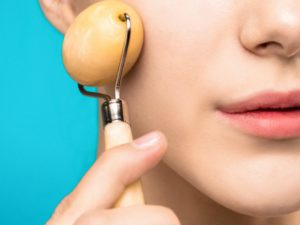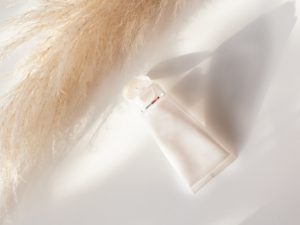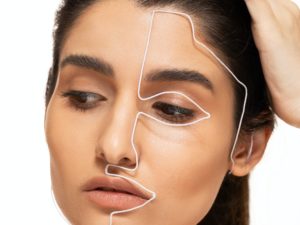Skincare Myths Ruining Your Skin Health and How to Fix Them
Skincare myths, especially those that relate to sunscreen, might be the most dangerous, as skin cancer is a real threat with the rising temperature. It seems like we hit higher highs every day, reaching record-breaking temperatures.

Skin health is incredibly important, as the skin is our first line of defense against the outside world. Being able to protect and support it is vital for overall wellbeing. Keep reading to find out the common skincare and sunscreen myths we’ve all made and what to do instead today!
Important of Skin Health
The skin is considered an organ, and as such, it performs vital roles in keeping us healthy and well. The skin is composed of the outermost layer, the epidermis, the dermis, and the hypodermis. The first layer is akin to a brick wall, as its main purpose is to protect as a barrier. It also has a microbiota of its own whose purpose is to fight off bugs, toxins, allergens, and carcinogens.
The dermis houses glands and receptors, and it is full of fibers, blood vessels, and hair follicles. This layer is like the nervous concrete of the wall with feeling. Its job is to strengthen, feel temperatures to report to the brain, and house sweat glands. It can also regulate our internal temperature, give us a sense of touch, and is active in producing vitamin D.
The deepest layer is the hypodermis, which protects the body from impact trauma and insulates the body.
With great purpose, comes great consequence, however, as there are about 3,000 possible disorders that can affect the skin. One preventable one, skin cancer, is surprisingly one of the most common.
5 Skin Health Myths
Here are 5 skin health myths we’ve all bought, and what to do instead to promote optimal skin health!
Myth 1. You can shrink your pores.
Pores are opening in the skin that house hair follicles or oil glands. People assume that with proper exfoliation and care, you can shrink your pores to unnoticeable.
Pore size however is determined by genetics and no amount of pore-shrinking products will change that. Some products may help reduce the appearance of pores by unclogging them and keeping them fresh. These products include niacinamide, salicylic acid, and retinol.
Myth 2. You don’t need sunscreen when it’s cloudy.
Some may think that UV rays are stopped by clouds. The UV rays from the sun, UVA and UVB, are so powerful that they can damage our cell’s DNA, leading to hyperpigmentation, sunburn, and even cancer. UVA penetrates the dermis, damaging collagen and speeding up aging. UVB rays are the ones that hit the top epidermis, causing burns. Tanning happens when the skin is exposed to too much UV and darkens to protect itself.
UV rays still get through cloud coverage, so it is important to use an SPF of 30 or more even when it is cloudy.
Myth 3. Darker skin tones don’t need sunscreen.
There are two types of melanin made by the body. Eumelanin, which causes deep skin tones, and pheomelanin, which is associated with lighter skin. Skin color is the ratio between these two pigments.
Darker skin tones have more eumelanin, and this does protect a bit more from the sun, but everyone needs to apply and reapply sunscreen as directed by the bottle. Individuals with darker skin tones are more likely to detect skin cancer at more progressed stages, meaning SPF is for everyone. The thought of darker skin tones not getting cancer is dangerous and untrue. To reiterate, everyone can get skin cancer and requires protection from the sun.
Myth 4. Healthy skin looks perfect.
It’s easy to think that healthy skin is free from blemishes, radiant, and even. In fact, society and social media, with all its filters and anti-aging products, demand that our skin be flawless. In reality, healthy skin is a living organ that has many functions that are deep. The surface of the skin is vital for health but is part of a complex unit.
In reality, while it’s nice to use toner, serums, and essences, many of these products do not penetrate deep into the skin to affect the dermis. They may work, especially if you have particular skin conditions like hyperpigmentation, but for normal healthy skin, you may only need a moisturizer to support optimal skin health.
Myth 5. Chocolate is bad for skin health.
Acne is inflammation that is caused by bacteria overgrowing in pores. Some studies even say that chocolate causes acne, so many choose to avoid it for health reasons.
In reality, acne can be caused by a variety of things, including hormones, and chocolate is not one of them. The studies that say acne is caused by chocolate are very small and cannot be applied to the whole population. Some studies that say chocolate does not cause acne are founded by chocolate makers.
This means this myth is inconclusive. Try chocolate out and notice your skin. Everyone is different and this myth hasn’t stopped me from treating myself.
The Takeaway
Skin health is vital as it is the largest organ in the body with vital roles in wellbeing and longevity. The skin is responsible for immune defense, physical protection, temperature regulation, and much more, so it is important to support its optimal function whenever possible. Check to make sure you don’t believe these common myths and try your best to adopt a skincare routine that fits into your busy life. Skincare is self-care.
Remember that health starts from within, so eat well, move your body daily, and take care of your mental health. Try to make sure you take care of gut health too! Microbiota health affects metabolism, muscle growth, the immune system, digestion, and even skin health! Get all the resources you need about microbiota health for free here!





